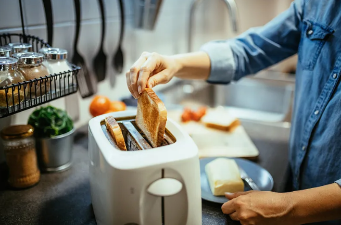In modern households, electricity and gas expenses have become an important part of many household budgets. Especially with the fluctuation of global energy prices and the improvement of environmental protection awareness, how to effectively reduce these energy costs has become the focus of many people. By taking some simple but effective energy saving measures, we can not only help save a lot of money, but also contribute to environmental protection. So what are some of the ways we can reduce our electricity and gas bills?
1. Use a smart thermostat
Smart thermostats, especially smart thermostats, have gradually become popular in European and American markets in recent years. Their biggest advantage is that they can automatically adjust the indoor temperature according to the daily work and rest of the family, avoiding the phenomenon of "excessive heating or cooling" that is often seen in traditional thermostats. For example, when you go out to work, the smart thermostat can automatically reduce the temperature of the air conditioner or heating, avoiding energy waste; And when you get close to home, it will adjust the temperature to your preferred level in advance.
By setting the right temperature control period, smart thermostats help you achieve accurate energy management, save energy costs, and ensure indoor comfort. Studies show that the proper use of smart thermostats can reduce a home's heating or cooling bills by 10 to 30 percent.

2. Choose energy-efficient appliances
When purchasing appliances, choosing products with higher energy efficiency is an important means to save energy costs. Whether it is refrigerators, washing machines or air conditioners, most appliances will be marked with their energy efficiency rating. In the European and American markets, the energy efficiency grade of home appliances is usually divided from A to G, of which class A indicates the best energy efficiency, and Class G is poor energy efficiency.
For example, a high-efficiency refrigerator may be slightly more expensive than a regular refrigerator, but its operating costs are much lower. According to the U.S. Department of Energy, a typical refrigerator uses about 400 degrees of electricity a year, while a more efficient refrigerator can reduce that to about 250 degrees, saving more than $50 a year. Therefore, when buying home appliances, although the initial investment may be slightly higher, in the long run, more energy efficient home appliances can bring more savings.
3. Improve house insulation
Many households in Europe and the United States are under pressure to pay for heating in winter and cooling in summer, and improving the insulation of homes, especially the insulation of Windows, doors and walls, is one of the effective ways to reduce household energy bills. Simply put, the insulation of a house determines the rate of heat loss, and poorly insulated houses lead to excessive heat loss, which requires constant heating or cooling, and increased use of electricity and natural gas.
4. Maintain the device regularly
Whether it is gas stoves, water heaters, or air conditioners and other appliances, if they are not cleaned and maintained for a long time, their energy efficiency will be affected, resulting in unnecessary energy waste. For example, the color of the flame of the gas stove can reflect whether the combustion is sufficient, the blue flame indicates that the combustion is good, and the yellow or red flame indicates that the combustion is insufficient, which not only wastes the gas, but also may affect the cooking effect.
In addition, the filter of air conditioning and heating equipment needs to be cleaned regularly to avoid dust accumulation leading to poor air circulation, which affects the cooling and heating effect of air conditioning or heating. The pipeline of the gas water heater also needs to be checked regularly to avoid the accumulation of scale and dirt, resulting in a decrease in equipment efficiency.
5. Avoid rush hour
In many countries in Europe and the United States, there are often time differences in energy prices. Electricity tends to be more expensive during times when demand is high, such as between 7 and 9 p.m. The use of gas is also often affected by fluctuations in air pressure during peak hours, resulting in lower fire power of gas stoves, increasing cooking time and energy consumption.
Therefore, reasonable scheduling of energy use time, avoid peak hours, can effectively reduce electricity and gas costs. For example, energy-intensive equipment such as washing machines and dryers can be used during the day or late at night, and cooking can be done earlier or later to avoid waste during peak hours.
Reducing your home's electricity and gas bills does not mean changing your quality of life, but saving energy by making small changes and adopting smart ways. By using smart thermostats, choosing efficient appliances, improving house insulation, and regularly maintaining equipment, you can not only make your home more energy efficient, but also reduce the pressure on electricity and gas bills, so as to better achieve the dual goals of the economy and the environment. Energy saving is everyone's responsibility, let us start from the side to create a more efficient, green lifestyle!


